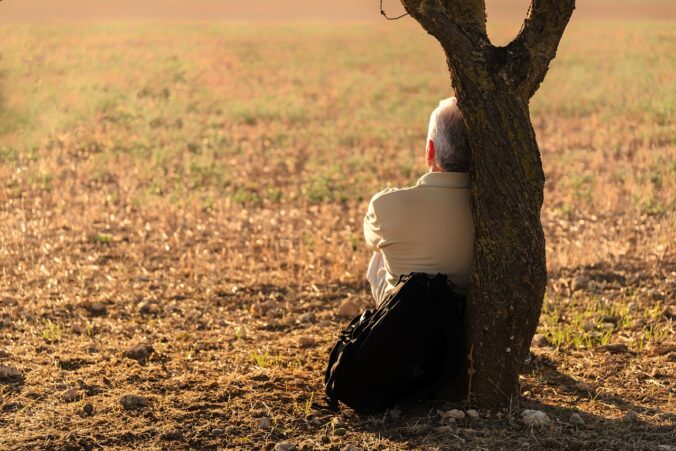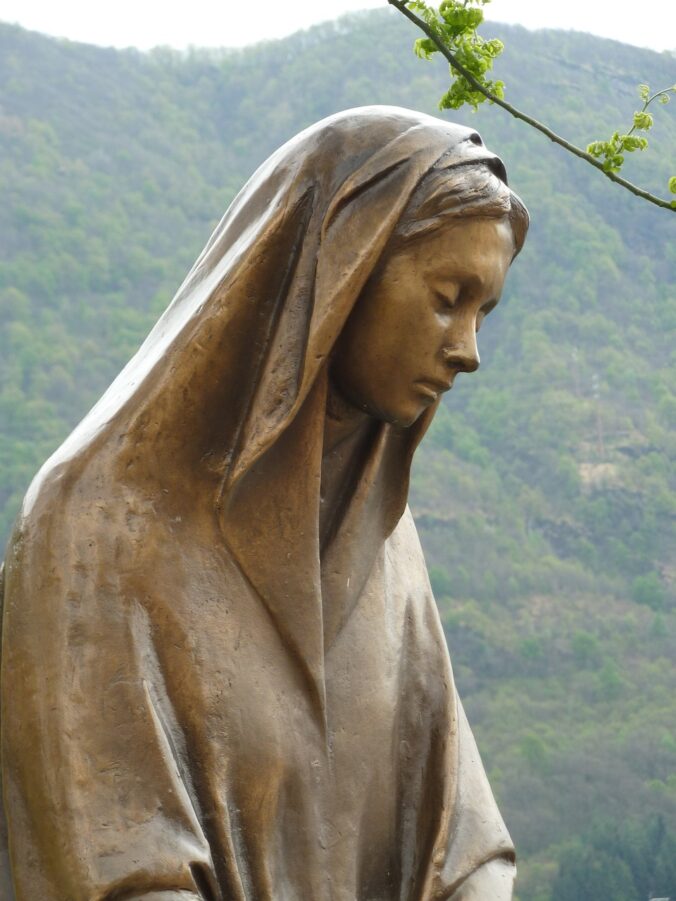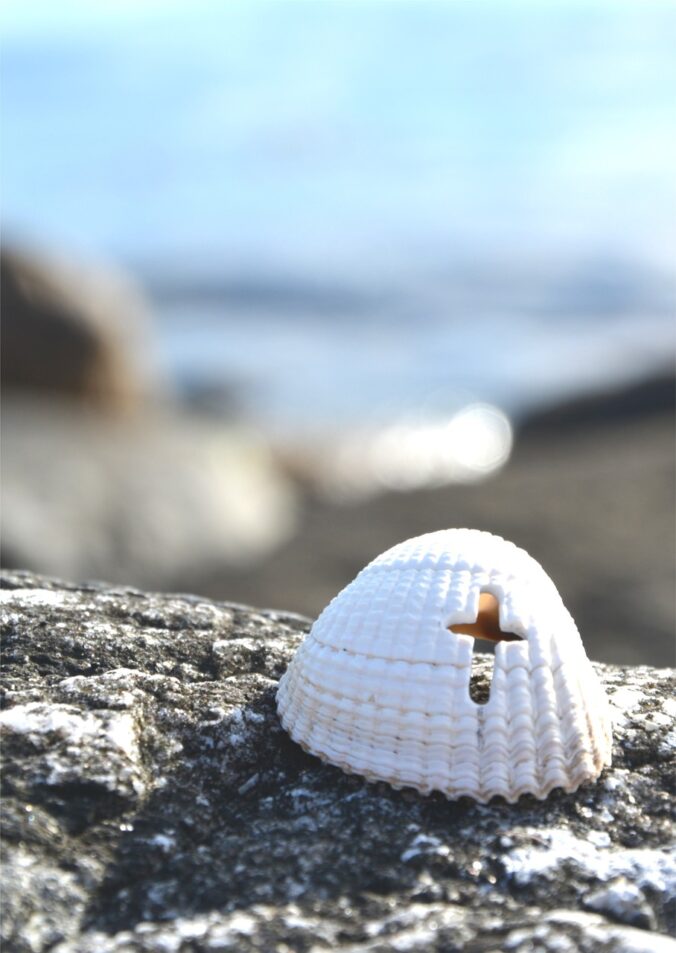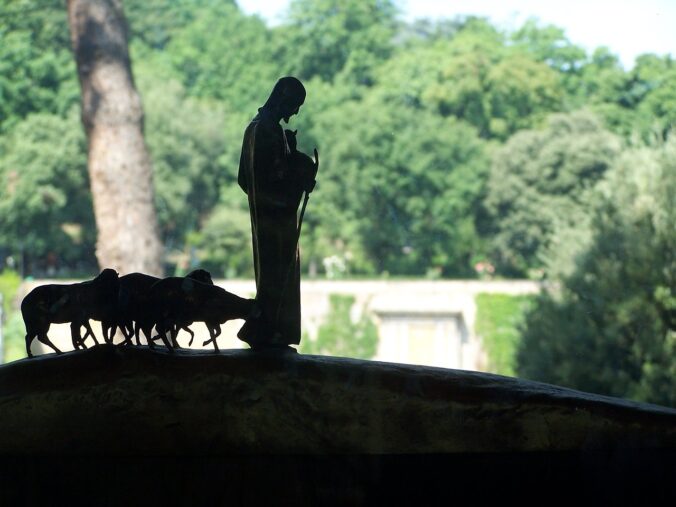For all of us, the closer we stay to Jesus each day, the more our trust in His Love for us grows. Spending even 10 minutes with Jesus each morning can dramatically change the course of our days. When trouble arrives, turning to Jesus for support enables Him to show us the way through the problem and back to peace.
When our sinful natures get us into trouble, it can be hard to turn back to Jesus. It’s natural to feel unworthy of His Love. So often, when we peel away the layers of what threatens to keep us from Jesus, we find this sense of unworthiness at the core of our separation.
The truth is we are unworthy of His Love, even when we are not sinning. God is so Pure and so Good. In the Old Testament’s Book of Exodus, which Moses wrote as a lasting memorial of God’s goodness, Moses sings these words to God:
“Who among the gods is like You, O Lord? Who is like You – majestic in holiness, awesome in glory, working wonders?” Exodus 15: 11
Moses loved God so much. He understood that God is so Holy that we cannot be in His Presence, if we are not holy too. God’s Holiness is so complete and so powerful that we simply could not withstand its force, if we were to enter into His Presence in our sinfulness, for sin cannot co-exist with God. Remember the stunning scene where Moses encounters God in the burning bush:
“Now Moses was tending the flock of Jethro his father-in-law, the priest of Midian, and he led the flock to the far side of the desert and came to Horeb, the mountain of God. There the angel of the Lord appeared to him in flames of fire from within a bush. Moses saw that though the bush was on fire it did not burn up. So Moses thought, ‘I will go over and see this strange sight – why the bus does not burn up.’ When the Lord saw that he had gone over to look, God called to him from within the bush, ‘Moses! Moses!’ And Moses said, ‘Here I am.’ ‘Do not come any closer,’ God said. ‘Take off your sandals, for the place where you are standing is holy ground.’ Then He said, ‘I am the God of your father, the God of Abraham, the God of Isaac and the God of Jacob.’ At this, Moses hid his face, because he was afraid to look at God.” Exodus 3: 1-6
It is humbling to observe Moses, the very keeper of God’s Ten Commandments, tremble in fear and shame, in the presence of God. Moses was aware of his own sinfulness, but he refused to let his weaknesses separate him from God, and the plans that God had for his life. We know from the Old Testament stories that Moses was faithful to and stayed close to God until the end.
How can we remain faithful to God? How can we keep turning back to Him, even when we do not feel worthy of His Love?
It is Jesus who opens the door for us to one day stand in God’s presence. God sent Jesus to earth, in human form, to plainly show us how to live good and holy lives. As Jesus dies for our sins and is resurrected by God, He offers us a path to strive for holiness and to experience fully the Love that God has for each one of us.
Jesus offers us God’s Love freely, loving us as the Father has loved Him. Throughout His time on earth, Jesus shows us over and again that life with God is not out of reach for us if we remain in Jesus’ Love. (John 15: 9)
How do we remain in Jesus’ Love? By following God’s Commands – and in particular, Jesus’ command to love one another as Jesus loves us, and as we love ourselves. Jesus comes into the world to help us to understand the Ten Commandments on an even deeper and more personal level. Take for example Jesus’ teaching on adultery:
“’You have heard that it was said, ‘Do not commit adultery.’ But I tell you that anyone who looks at a woman lustfully has already committed adultery with her in his heart.’” Matthew 5: 27-28
Or Jesus’ teaching on murder:
“’You have heard it said to the people long ago, “Do not murder, and anyone who murders will be subject to judgment.’ But I tell you that anyone who is angry with is brother will be subject to judgment.’” Matthew 5: 21-22
Jesus is warning us about the dangers of solely following the legalistic and public parameters of the Ten Commandments. He is asking us to also live out God’s Commands in our hearts. Jesus shows us that tending to our hearts and our thoughts enables us to truly love one another. He shows us the power of our hearts to influence behaviors that enable good things to happen for those around us.
It is easy to become burdened with sinfulness. But Jesus also confirms that it is completely in our power to overcome our sinful natures. The Gospel of John recounts a story of a woman caught in adultery. Jesus forgives her and says the following:
“’Go now and leave your life of sin.’” John 1: 11
Jesus says the same thing to all of us:
“’Come to me, all you who are weary and burdened, and I will give you rest. Take my yoke upon you and learn from Me, for I am gentle and humble in heart, and you will find rest for your souls. For My yoke is easy and My burden is light.’” Matthew 11: 28-30
In the midst of a noisy, chaotic, and sometimes frightening world, Jesus’ promise may seem too good to be true. And yet here He is, the Son of God, still calling each one of us closer to Him, despite our imperfect lives. In asking us to take up His yoke, Jesus is asking for our permission to let Him guide our days, for He knows the good plans the Father has for us. (Jeremiah 29: 11) He is promising that our burdens will be light if we live in His Love.
Jesus is also promising that He is capable of giving us everything we need to lead great lives – and to make the lives of those around us more beautiful.
Are Jesus’ promises too good to be true?
The way I see it, there is only one way to find out.
If you are already living your life with Jesus, go deeper into relationship with Him.
If you are living life on your own, ask Jesus to walk with you, and see where He leads you.
For Jesus says, “’Ask and it will be given to you; seek and you will find; knock and the door will be opened to you. For everyone who asks receives; he who seeks finds; and to him who knocks, the door will be opened.’” Matthew 7: 7-8










Recent Comments